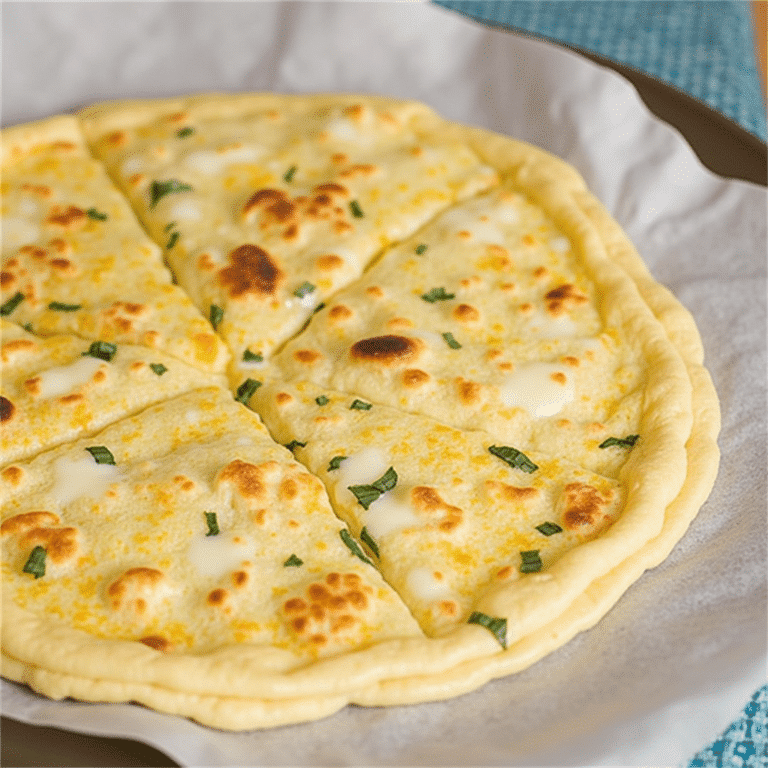Turkish breakfast, known as “kahvalti,” is a big deal. It’s filled with savory and sweet dishes that highlight Turkey’s rich food culture1. This meal is more than just eating. It’s a time for families and friends to enjoy each other’s company and have deep talks. You’ll find everything from aromatic Turkish tea1 to a variety of freshly baked breads, cheeses, eggs, and spreads.
This traditional Turkish breakfast gives you a taste of the country’s food heritage. It’s a feast for your taste buds and a peek into Turkish culture.
Key Takeaways
- Turkish breakfast, or “kahvalti,” is a lavish spread of savory and sweet dishes that showcases the rich culinary traditions of Turkey.
- The breakfast experience is not just about sustenance but also a cherished cultural tradition where families and friends gather for leisurely conversations.
- Turkish breakfast features a diverse array of freshly baked breads, cheeses, eggs, and spreads, offering a tantalizing taste of the country’s gastronomic heritage.
- Aromatic Turkish tea is a hallmark and traditional accompaniment to the Turkish breakfast experience.
- The Turkish breakfast is a mix of diverse flavors and textures, providing a satisfying and culturally immersive dining experience.
The Elaborate Affair: An Introduction to Turkish Breakfast
The history of Turkish breakfast goes back to the Ottoman Palace. It was a time when the breakfast table was filled with the best ingredients from across the empire2. As the empire grew, so did the variety and amount of food at breakfast. You could find everything from butter and cornbread from the Black Sea to pastries from Central Anatolia2.
Today, finding the best local ingredients is key to enjoying Turkish breakfast. It’s a big deal on weekends and holidays, bringing people together to celebrate and enjoy the land’s bounty2.
History and Significance of Turkish Breakfast
In Turkey, breakfast is seen as the most important meal of the day2. It’s filled with a mix of foods like olives, cured meats, and pastries2. Every region has its own special breakfast items, but there are five things you’ll always find: bread, spreads, cheese, eggs, and black tea2.
Breakfast is a time for socializing, often with family or friends on weekends2.
Variety and Diversity in Turkish Breakfast Traditions
Every Turkish family adds their own twist to breakfast2. You might find dishes like “boyoz” or “Alanya bohçası”2. Different regions have their own specialties, like “Kavut” in Trabzon or “Katmer” in Gaziantep2.
For those in a hurry, “Simit” and “çay” are popular choices2. But for a full breakfast, try “pepper bread” or “zeytin börek”2.
Traditionally, the Ottoman Turks had two meals a day, with a big brunch-like meal and a late dinner3. Now, most families eat three meals a day, with bigger breakfasts on weekends3. These breakfasts often include cheese, olives, and bread, with regional twists3.
Turkey eats more bread per person than any other country, with 199.6 kg (440 lb) a year3. There are many types of bread, like Bazlama Ekmek and Pide3. People there eat over three times their body weight in bread each year3. And with over 200 types of soups, Turkish cuisine is rich and diverse3.
Essential Elements of a Traditional Turkish Breakfast
A traditional Turkish breakfast is incomplete without the turkish breakfast tea. It’s brewed in a special pot called a “çaydanlık” and served in thin, tulip-shaped glasses with sugar4. Alongside, you’ll find a variety of freshly baked turkish breakfast breads. These include the famous turkish breakfast simit, bazlama, and turkish breakfast gozleme5. These breads are perfect for enjoying with cheese, spreads, and other toppings5.
Turkish Tea: The Official Accompaniment
Turkish tea is a big deal in Turkey, with people drinking an average of 7 pounds of it each year4. It’s made in a special teapot called ‘çaydanlık’, where tea leaves steep in boiling water4. This tea is served black, in small tulip glasses, and is a key part of Turkish breakfast4.
Bread Galore: From Simit to Gözleme
Along with turkish breakfast tea, you’ll find a variety of turkish breakfast breads at the table5. The turkish breakfast simit, a sesame-encrusted bread, is a favorite, often paired with cheese5. Other breads like bazlama and turkish breakfast gozleme are also popular5. These breads, along with ekmek and warm rolls, are great for holding all the toppings and spreads of a Turkish breakfast5.
“On Sundays, many Turkish families share an actual newspaper, accompanying it with a teeny cup of bitter Turkish coffee after breakfast.”4
Cheese Extravaganza: A Delightful Variety
Cheese is a big part of the turkish breakfast table. It comes in many types from different regions6. You’ll find beyaz peynir (like Greek feta), kaşar (a firm, light yellow cheese), and tulum (a pungent, crumbly goat’s cheese). There’s also kaymak, a rich and silky clotted cream, often with honey or honeycomb.
This mix of fresh, tasty cheeses adds a great taste to the Turkish breakfast. It goes well with both savory and sweet foods.
Turkish breakfast also has new and special turkish breakfast cheese types. Cheesemakers in Turkey make unique cheeses with their own tastes and textures. You can try the creamy civil peyniri from the Black Sea or the firm tulum peyniri from the Aegean coast.
“Cheese is the soul of the Turkish breakfast table, a delightful journey through the diverse flavors and traditions of the country.”
Whether you like the classic beyaz peynir or want to try new cheeses, the cheese is a key part of Turkish breakfast7. It’s great with freshly baked breads and makes the breakfast special. These cheeses let you enjoy the rich culture of Turkish food.
Egg-ceptional Delights: From Menemen to Sahan
Eggs are a big part of Turkish breakfast, with many ways to make them. You can have them hard-boiled, fried, or in a traditional sahan (small metal skillet)8. Menemen is a favorite, a spicy scrambled egg dish with onions, peppers, and tomatoes8. It shows the creativity in Turkish breakfast, mixing flavors and aromas into a unique dish.
Egg Preparation Styles in Turkish Breakfast
Turkish breakfast often has eggs made in different ways, like hard-boiled or fried8. Eggs are versatile, fitting many tastes and preferences8.
Menemen: The Spicy Scrambled Egg Dish
Menemen is a well-liked Turkish breakfast dish, made with scrambled eggs, tomatoes, and onions9. Sometimes, eggs are poached in the sauce instead of scrambling9. This recipe includes eggs, ripe tomatoes, tomato paste, green pepper, onion, and more9. It’s served with garlic yogurt sauce, cucumbers, olives, and bread9.

“Menemen, a spicy scrambled egg dish, is a testament to the creativity and ingenuity of Turkish breakfast cuisine.”
Menemen takes about 30 minutes to cook, with 10 minutes of prep time9. It makes 2 servings9. You’ll need eggs, tomatoes, and more for this dish9. The garlic yogurt sauce is made with Greek yogurt, garlic, lemon juice, and sumac powder9.
Turkish breakfast is famous for its egg dishes, from menemen to sahan-served eggs8. These turkish breakfast eggs and turkish breakfast egg dishes show the creativity of Turkish breakfast8.
Spreads, Jams, and Honey: Sweet and Savory Delights
Turkish breakfast is filled with sweet and spreadable treats. You’ll find kaymak (clotted cream) alongside jams and honeys. These include strawberry, cherry, watermelon, milk, and even eggplant preserves10. These sweets offer a nice contrast to the salty parts of the breakfast.
Kaymak: The Decadent Clotted Cream
Kaymak, a thick, creamy clotted cream, is a favorite in Turkish breakfasts. It’s loved for its rich texture and sweet taste10. Enjoy it alone or with honey for a special start to the day.
Regional Jams and Honey Varieties
Turkish breakfasts are famous for their variety of turkish breakfast spreads, turkish breakfast jams, and turkish breakfast honey10. Each region offers its own sweet spreads, like the Aegean’s fig preserves and central Anatolia’s apricot jams11. These local specialties, made with local fruits and honey, add depth to breakfast.
Turkey is known for its quality honey, like flower, pine, and chestnut honey11. These turkish breakfast honey types are often served with other breakfast items. They create a mix of tastes and textures.
| Turkish Breakfast Spreads and Jams | Regional Specialties |
|---|---|
| Strawberry Jam | Watermelon Jam (Southeastern Anatolia) |
| Cherry Jam | Eggplant Preserve (Aegean Coast) |
| Fig Jam | Milk Jam (Central Anatolia) |
| Apricot Jam | Chestnut Honey (Black Sea Region) |
These turkish breakfast spreads and turkish breakfast jams go great with turkish breakfast kaymak and turkish breakfast honey. Together, they make a breakfast that delights the senses and shares the flavors of Turkey1011.
turkish breakfast: A Cultural Experience
Turkish breakfast is more than just a meal; it’s a cultural experience that shows Turkey’s rich heritage and deep traditions12. It’s a time when families and friends come together for long, leisurely chats. This tradition brings people closer, creating a strong sense of turkish breakfast culture and turkish breakfast community12. The way breakfast is presented, with its many colors, tastes, and textures, celebrates Turkey’s culinary richness and the host’s generosity12.
Traditional Turkish breakfast varies by region but usually includes artisan cheeses, different breads, pastries, eggs, veggies, nuts, dried fruits, and olives12. It’s a big deal on weekends, but weekdays are simpler with simit (sesame bagel) and cay (Turkish tea)12. This meal is seen as a special occasion, filling the table late in the morning on weekends12.
The Turkish Breakfast Club (TBC) began with Alper Nakri and Deniz Hotamisligil at Burning Man in 2019 and grew to over 2500 members13. A typical TBC spread includes tea, coffee, fresh bread, eggs, local jams, cheese, olives, and pastries like börek and baklava13. The TBC table is five feet wide, letting everyone easily reach across13.
The tradition of Turkish breakfast goes back to the Ottoman Palace, featuring the finest ingredients like butter, olive oil, and pastries13. Nakri and Hotamisligil focus on a culture of inclusion and belonging at TBC, seeing guests as co-creators13. The space is cozy, with traditional textiles and pillows, inspired by Mediterranean cultures and Burning Man13.
“Turkish breakfast is typically enjoyed on weekends and holidays, emphasizing community, fertility, and abundance.”13
Regional Variations: Breakfast Diversity Across Turkey
Traditional Turkish breakfasts share common elements across the country. Yet, the dishes and ingredients vary greatly by region14. This shows the rich and complex Turkish culinary traditions. Each area adds its own special flavors and ingredients to breakfast.
Black Sea Region Specialties
In the Black Sea area, breakfast might include cornbread and “mıhlama,” a porridge with corn meal and cheese14. The region’s farms provide fresh herbs, dairy, and seasonal fruits, making breakfast rich and full.
Aegean Coast and Southeastern Anatolia Influences
By the Aegean coast, breakfast might have fresh herbs, olive oil, and seafood14. In southeastern Anatolia, tahini and grape molasses add unique tastes to breakfast15.
Turkish breakfast is a key cultural event. It brings people together for long chats and a wide variety of tastes15.
Vegan-Friendly Turkish Breakfast Options
Traditional Turkish breakfast, or ‘serpme kahvalti,’ is known for its dairy and meat. But, Istanbul’s vegan scene is growing fast16. Now, vegans and vegetarians can enjoy Turkish breakfast with fresh produce, olives, and plant-based cheeses.
Many Turkish pastries like gözleme and böreks can be made vegan16. Places like Ceşme Bazlama Kahvalti in Nişantaşi and Sureya Kahvaltı in Kurtuluş offer vegan and vegetarian Turkish breakfasts.
- Ceşme Bazlama Kahvalti in Nişantaşi focuses on breakfast and has an ‘all-you-can-eat’ option16. They offer vegan and vegetarian dishes alongside traditional Turkish food.
- Sureya Kahvaltı in Kurtuluş uses local, fresh produce for a unique Turkish breakfast in a garden16.
Tourism in Turkey is growing, especially in cities like Fethiye and Kalkan17. Restaurants are now offering more vegan and vegetarian options for Western visitors. Traditional Ev Yemekleri restaurants also have many affordable, authentic Turkish dishes that can be made plant-based.
| Dish | Price Range |
|---|---|
| Gözleme | 3 lira to 15 lira |
| Pide | Starting at 8 lira |
| Ciğ Köfte Durum | Around 3.50 lira |
| Mixed Mezze | 7 to 15 lira |
| Vegetable Casseroles | 7 to 15 lira |
In Turkey, you can find fresh fruits and vegetables at low prices, like cherries for 2 lira in Fethiye17. Vegan-friendly treats like Turkish Delight and Halva are also easy to find. They come in many flavors for dessert lovers.
“The rise of plant-based dining in Istanbul has opened up a whole new world of culinary exploration for vegans and vegetarians, allowing them to fully embrace the vibrant flavors and traditions of Turkish breakfast.”
Best Restaurants for Authentic Turkish Breakfast
Istanbul and other Turkish cities are full of great places for a Turkish breakfast. You can find both famous spots and hidden gems that offer a taste of this special meal18. In Istanbul, places like Çiya Sofrası, Münferit, and Faipping are top choices for breakfast18. Other cities like Izmir, Cappadocia, and Gaziantep also have amazing spots for breakfast, thanks to family-run places and local eateries18.
Top Picks in Istanbul
In Istanbul, many restaurants are known for their great Turkish breakfasts19. MSA’nin Restorani is famous for its fluffy eggs and aromatic coffee19. Mangerie offers breakfast with a view of the Bosphorus, serving all day19. Delicatessen in Nisantasi and Doğaciyiz Gourmet in Cihangir provide a mix of traditional and modern breakfast options19.
Local Gems in Other Cities
Outside of Istanbul, Turkish breakfast is also a big deal in other cities18. In Izmir, Liman is known for its fresh tomato-cucumber salad and cacık dip, reminding you of Istanbul’s Bosphorus18. Mangal Kebab in Sunnyside offers a casual ‘ocakbasi’ experience, where you can order grilled meats and mezze18. Taskin Bakery in Paterson, New Jersey, is famous for its fresh simit, a sesame-seeded Turkish bread18.
Whether you’re in Istanbul or exploring other Turkish cities, you can easily find a great Turkish breakfast20. These places offer everything from traditional serpme kahvalti to local specialties, letting you taste the rich flavors of Turkish morning food19.
“Experiencing Turkish breakfast outside the hotel or apartment at least once during a visit to Istanbul is a must. However, navigating the numerous restaurants can be challenging, leading visitors to spend hours on a quest and sometimes ending up in the wrong place.”20
Conclusion
Turkish breakfast is more than just food; it’s a blend of culture and tradition21. It shows the warmth and hospitality of Turkish people. With aromatic Turkish tea and a variety of savory and sweet dishes, it’s a feast for the senses22.
Enjoying it in a busy café or at home, it’s a way to connect with Turkish culture22. It highlights the importance of sharing meals with family and friends. For a unique breakfast experience, trying Turkish breakfast is a must.










